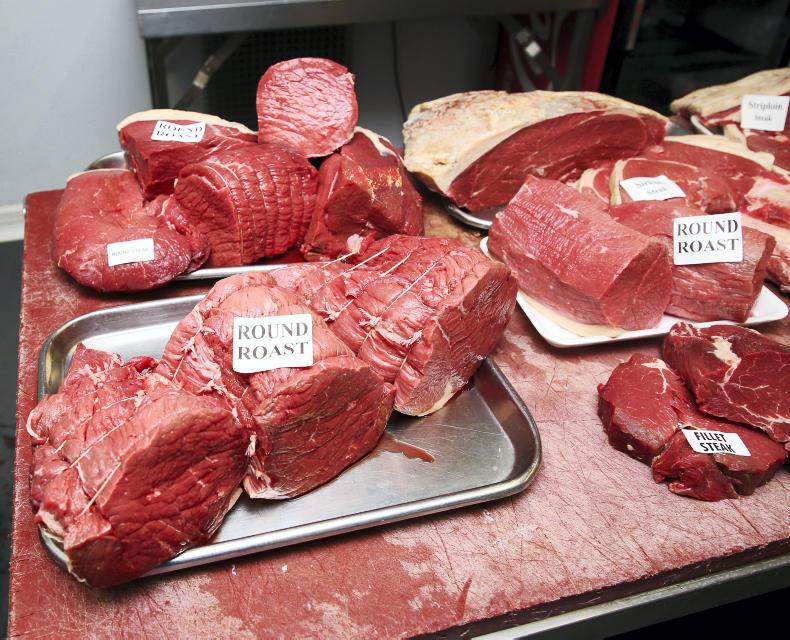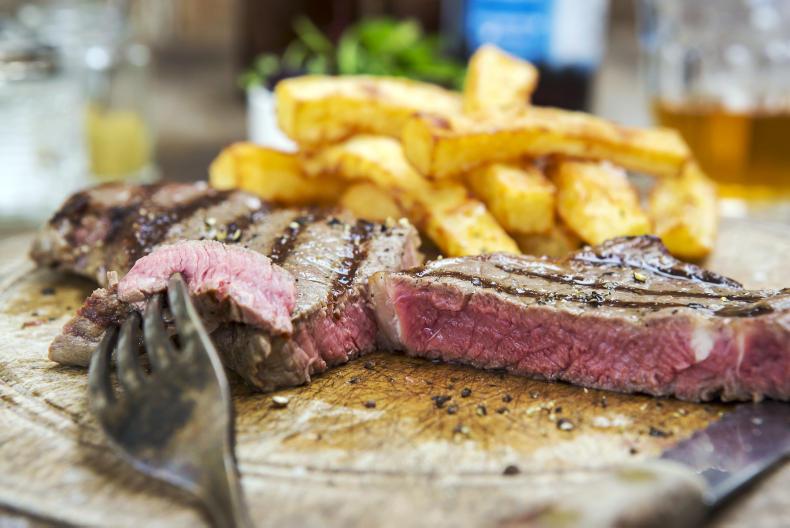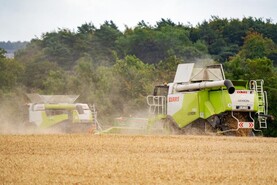Over the past three to four months a lot has changed for us all as COVID-19 has disrupted our lives in unprecedented ways. Bord Bia has been tracking changing consumer trends since March both domestically and in our key international markets.
Some of the changes in consumption may be temporary but many more look like becoming permanent. Research has shown that it takes 66 days for behaviours to become habits, or for a change in behaviour to ‘stick’.
So inevitably, as a consequence of the COVID-19 pandemic, there will be some permanent changes in the food we eat.
Recent years have seen a big focus on meat consumption and sustainability. We are all acutely aware of how meat consumption was somehow viewed as ‘irresponsible’ or unsustainable in some quarters.
Meat, like all grocery store items, has seen an uplift in sales during the pandemic. But the real story of interest is not just the increased purchase of meat but the increased focus on the quality of that meat.
Changing consumption
Our consumer research indicates a big shift in ‘scratch cooking’ in our key markets. Roughly one-third (32%) of Irish consumers are cooking from scratch more as a result of COVID-19 and almost two-thirds of those consumers (61%) expect to continue to do so into the future.
With more people scratch-cooking, consumers are paying more attention to the quality of the fresh ingredients they use, particularly in the meat category. Approximately 17% of Irish consumers claim they are now ‘buying better quality beef’. We are also seeing this trend manifest itself in a number of our key export markets.
The German market now accounts for 6.5% of all Irish beef exports, making it the fifth-largest market for Irish beef globally. Our research in the German market shows us that 13% of consumers are buying better-quality beef as a result of COVID-19.
Critically, over half of these consumers intend to do so into the future. A clear niche of consumers ‘trading up’ to better-quality beef is emerging, which is an ideal target for our premium grass-fed Irish beef.

And it is not just in Germany that we see this pattern. We are also seeing niche segments of consumers ‘trading up’ their beef choices all over the world in markets such as the US (18% of consumers), Spain (17%) and France (18%).
In Great Britain, the largest market for Irish beef exports, 10% of consumers are now buying better-quality beef. This is slightly lower than some of our international markets but evidence nonetheless of an emerging consumer prepared to pay more for better quality.
There are also signs of a greater focus on shopping local, with 39% of Irish consumers choosing more local grocery brands as a result of COVID-19. As an export-dependant nation, this is a behaviour that we must monitor closely in our international markets.
Part of this shift to buying better quality beef also comes from a greater focus on food safety for many consumers. This cohort of consumers are paying more and more attention to the origin of their food, making the role of Bord Bia in telling the story of Irish farming all the more important in our export markets.
Ireland has a unique opportunity to tell its quality story to consumers by talking to them about our natural grass-fed beef. And we know from extensive market research around the world that the grass-fed story is hugely motivating to consumers.
Research completed by Bord Bia in the key exports markets of Britain, Germany and the US reveals that the most influential claim when it comes to beef purchase is around animals that are raised on open pasture.
Pork and poultry
COVID-19 has also seen changes in consumption of other proteins. Irish consumers are buying chicken in ever greater numbers. The proportion of meat shoppers buying chicken for a main evening meal in Ireland jumped from 67% to 76% between the beginning of March and the end of April.
In the British market, we know from Bord Bia’s shopper insight research that the most significant uplift has been in pork where purchase of pork for main evening meals has jumped from 18% of shoppers to 26% of shoppers during lockdown.
Future proofing
The world has changed in the past three months and it will continue to change. But the early indicators of how consumers are changing reveals quite a lot. It reveals a renewed focus on the quality of food and food ingredients.
Perhaps out of all the changes COVID-19 has brought, we are about to move into a future where the quality of natural food will matter more than ever.
Over the past three to four months a lot has changed for us all as COVID-19 has disrupted our lives in unprecedented ways. Bord Bia has been tracking changing consumer trends since March both domestically and in our key international markets.
Some of the changes in consumption may be temporary but many more look like becoming permanent. Research has shown that it takes 66 days for behaviours to become habits, or for a change in behaviour to ‘stick’.
So inevitably, as a consequence of the COVID-19 pandemic, there will be some permanent changes in the food we eat.
Recent years have seen a big focus on meat consumption and sustainability. We are all acutely aware of how meat consumption was somehow viewed as ‘irresponsible’ or unsustainable in some quarters.
Meat, like all grocery store items, has seen an uplift in sales during the pandemic. But the real story of interest is not just the increased purchase of meat but the increased focus on the quality of that meat.
Changing consumption
Our consumer research indicates a big shift in ‘scratch cooking’ in our key markets. Roughly one-third (32%) of Irish consumers are cooking from scratch more as a result of COVID-19 and almost two-thirds of those consumers (61%) expect to continue to do so into the future.
With more people scratch-cooking, consumers are paying more attention to the quality of the fresh ingredients they use, particularly in the meat category. Approximately 17% of Irish consumers claim they are now ‘buying better quality beef’. We are also seeing this trend manifest itself in a number of our key export markets.
The German market now accounts for 6.5% of all Irish beef exports, making it the fifth-largest market for Irish beef globally. Our research in the German market shows us that 13% of consumers are buying better-quality beef as a result of COVID-19.
Critically, over half of these consumers intend to do so into the future. A clear niche of consumers ‘trading up’ to better-quality beef is emerging, which is an ideal target for our premium grass-fed Irish beef.

And it is not just in Germany that we see this pattern. We are also seeing niche segments of consumers ‘trading up’ their beef choices all over the world in markets such as the US (18% of consumers), Spain (17%) and France (18%).
In Great Britain, the largest market for Irish beef exports, 10% of consumers are now buying better-quality beef. This is slightly lower than some of our international markets but evidence nonetheless of an emerging consumer prepared to pay more for better quality.
There are also signs of a greater focus on shopping local, with 39% of Irish consumers choosing more local grocery brands as a result of COVID-19. As an export-dependant nation, this is a behaviour that we must monitor closely in our international markets.
Part of this shift to buying better quality beef also comes from a greater focus on food safety for many consumers. This cohort of consumers are paying more and more attention to the origin of their food, making the role of Bord Bia in telling the story of Irish farming all the more important in our export markets.
Ireland has a unique opportunity to tell its quality story to consumers by talking to them about our natural grass-fed beef. And we know from extensive market research around the world that the grass-fed story is hugely motivating to consumers.
Research completed by Bord Bia in the key exports markets of Britain, Germany and the US reveals that the most influential claim when it comes to beef purchase is around animals that are raised on open pasture.
Pork and poultry
COVID-19 has also seen changes in consumption of other proteins. Irish consumers are buying chicken in ever greater numbers. The proportion of meat shoppers buying chicken for a main evening meal in Ireland jumped from 67% to 76% between the beginning of March and the end of April.
In the British market, we know from Bord Bia’s shopper insight research that the most significant uplift has been in pork where purchase of pork for main evening meals has jumped from 18% of shoppers to 26% of shoppers during lockdown.
Future proofing
The world has changed in the past three months and it will continue to change. But the early indicators of how consumers are changing reveals quite a lot. It reveals a renewed focus on the quality of food and food ingredients.
Perhaps out of all the changes COVID-19 has brought, we are about to move into a future where the quality of natural food will matter more than ever.







 This is a subscriber-only article
This is a subscriber-only article





